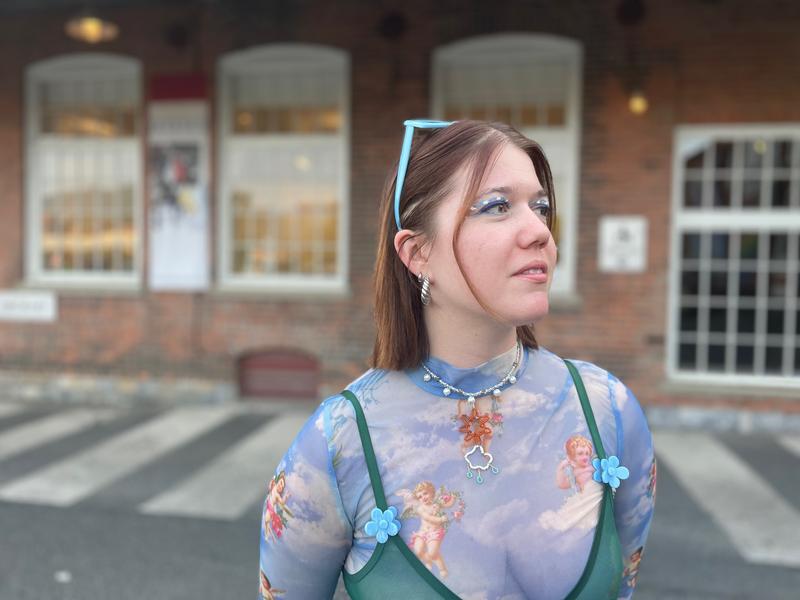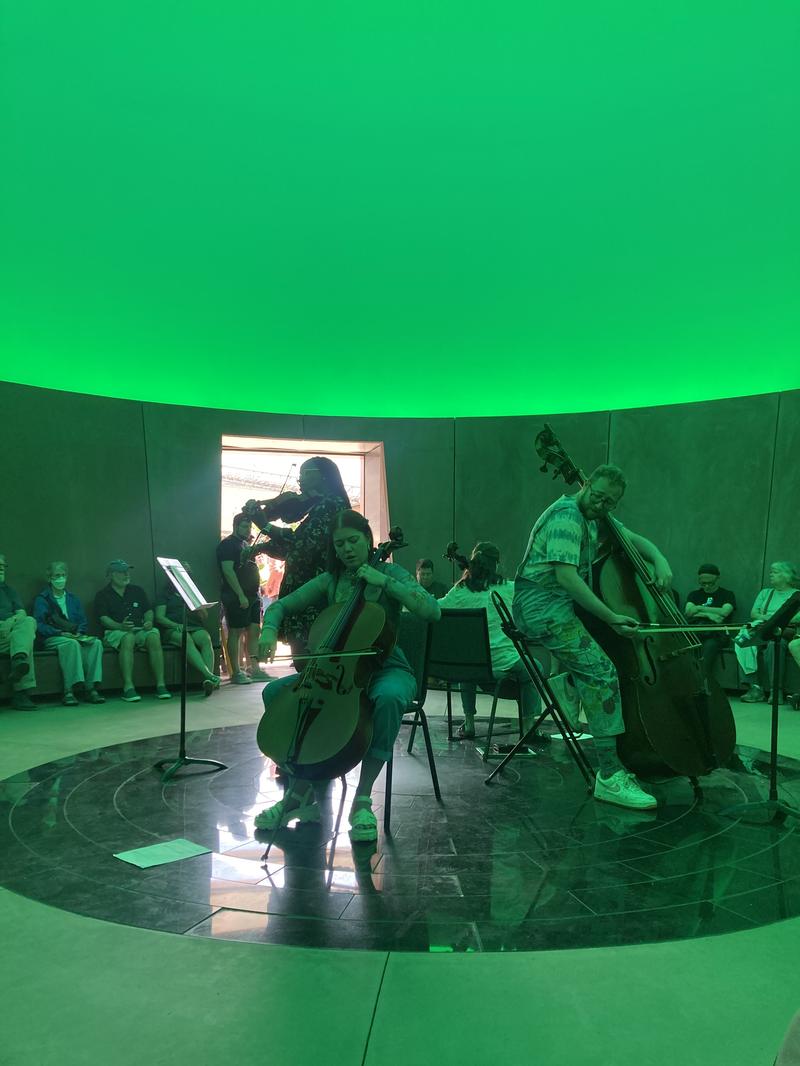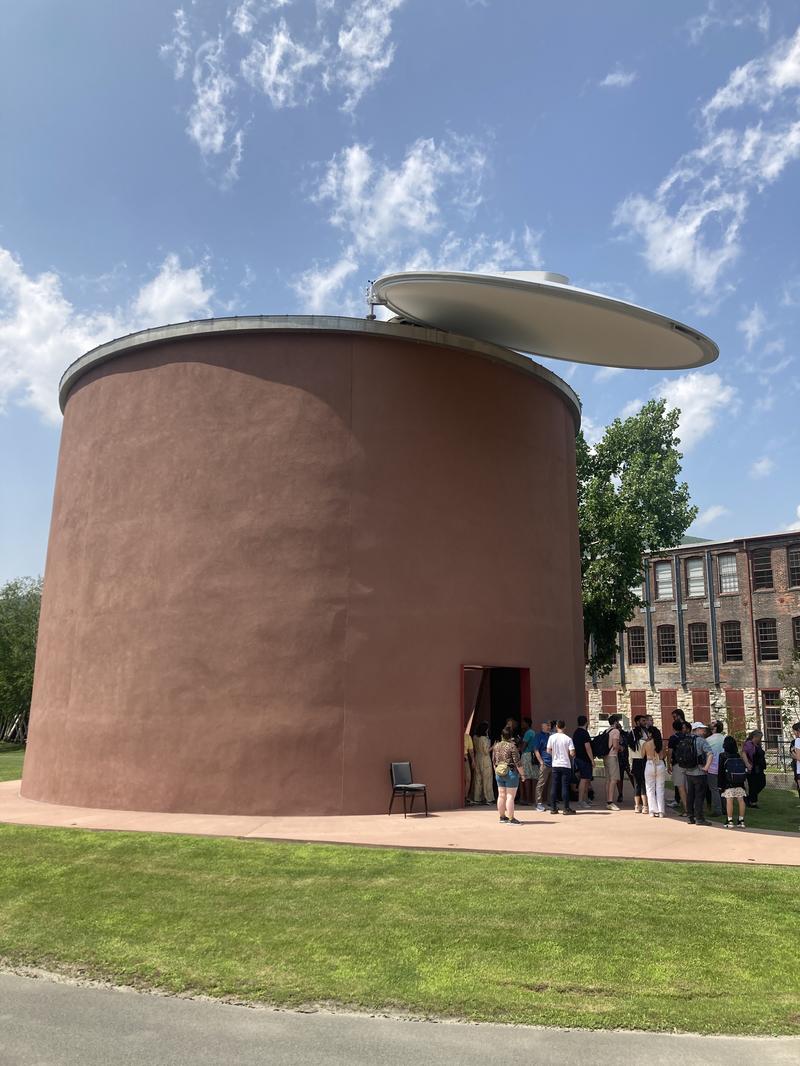
For composer Lucy McKnight, the pleasure is in the process
By Brooke Knoll
Like many people, composer Lucy McKnight’s life was interrupted by the COVID-19 pandemic. When the world around her stopped, so did she.
That is, until she took a pottery class.
In order to work through the emotional toll of a global pandemic, combined with other familial and personal hardships, she started to learn hand building techniques at her local pottery studio. After the class ended, she signed up for a membership. She kept going back.
“I liked that I was a beginner at something, and that I had a looseness, a gentleness with myself - like a lack of expectation,” she said. “It was just about having as nice a time as I could in literally the hardest time of my entire life.”
Making pottery requires multiple steps, from forming the clay with your hands, to firing it in the kiln and glazing it. Within those steps, there’s many times something can go wrong. For McKnight, that sparked a moment of realization: that it’s okay when things fall apart, and acceptance of what can’t be changed is a beautiful, peaceful thought.
So, she asked herself: “What if music could feel like this?”
McKnight has been classically trained in music from a young age. “I don't remember learning how to read music because it started so early and it's been so key to my identity from the beginning,” she noted. The Los Angeles native and Bang on a Can Composer Fellow is now pursuing her PhD in composition at Princeton University.
While the structure and rules of composition shaped her understanding of music, the pressure of deadlines made her anxious: “the paralysis just got increasingly worse and worse. I would push through in a panic and put something out. And it would be awesome. But the only thing that felt awesome was being done.”
After her pottery-induced breakthrough, she transferred that concept of acceptance and liberation onto her composing process. While writing her piece “fated joy,” which was performed during Wednesday’s lunchtime recital at Bang on a Can’s Summer Festival, she spent most her time with the musicians instead of in front of a piece of paper or computer, remarking that “the score is a touch point, like, ‘remember these things’ and a slight visual representation, but the most important information was disseminated in person and in rehearsal.”
“Notation matters, but it’s not the thing. The art is the active music making, making it in real time in the rehearsal process. When I'm lucky enough to work with people who have this time, and the willingness and the generosity to enter that process for me, it's the best feeling in the world.”
The results of that process were revealed in C.A.V.U., James Turrell’s immersive light installation, outside of MASS MoCA’s main campus. In the center of the space, four musicians were set up in the circle with their backs to each other. As the lights in the space shifted from blue to green, the sounds of two cellos, a bass, and a viola began.
The reverberant room made the strings meld into each other, becoming one large instrument. Then, McKnight’s voice cut through the space. Soon the other musicians - Kennedy Taylor Dixon (viola/voice), Elizabeth Hall-Keough (cello/voice), and Sam Zagnit (double bass/voice) - joined in, voices overlapping and blending together with primal expressions of sound.
“This was the first time we played it all together - in that space,” McKnight admitted after the recital. When she found out that C.A.V.U. was a potential space for performances, she went by herself to improvise with her voice in the cylindrical room.
The acoustics were just what she was looking for. And, she knew exactly who she wanted to compose for.
McKnight worked with Dixon before (they are roommates at Princeton) and both musicians often sing while playing their instruments. “Then I learned that that's something Sam [and Elizabeth] also do. And I thought, the hottest quartet that hasn't been happening is two cellos, one viola, one bass,” she said excitedly. “Let’s make it even hotter - everyone's also singing.”
“fated joy” runs about seven minutes long and oscillates between lush crescendos of voices and strings. McKnight built structured improvisation sections into the piece, allowing the musicians' voices to rise and fall together along with the smoothness of bow hairs against strings. The pattering taps of fingertips against wood punctuated the wash of sound they created together. There wasn’t a distinguishable form or pattern - it was a continuous flow of sound bouncing around, enveloping the musicians and audience members in an embrace.
A sense of freedom is now integral to McKnight’s creative expression - whether it’s writing music, making pottery, or getting dressed for the day. You could spot her sporting bright colors and interesting patterns almost every day as she walked around the MASS MoCA campus during the Summer Festival. The day “fated joy” was performed, white and orange flowers and blue lines graced her eyelids, matching the colors of her layered mesh tops.
The title for the piece was inspired by Clarice Lispector’s “An Apprenticeship, or The Book of Pleasures.” The book explores many philosophical conjectures about life and love, but ultimately it’s about the joy of existence - no matter where you are in the journey.
“It’s our fate. [Joy] is always there to look at, appreciate, reach for and grab - even if your sculpture blows up, because that’s hilarious,” McKnight said with a smile. She has been embracing that joy through her music, her self expression, and her interactions with others. And it shows.
“What matters in this life is that we're okay, and we're having as good of a time as we can, and being kind and caring to the people around us who we share time and space with.”
“That’s the way I want to live - in any medium.”
Hear an excerpt of Lucy McKnight's "fated joy":
Brooke Knoll is a contemporary harpist, radio professional and digital marketer based in Kansas City, Missouri. She is an active improviser with the Extemporaneous Music and Arts Society and is an on-air host for Classical KC.


